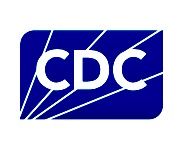Hepatitis C cascade of care among adults — Georgia, April 2015–April 2024.
Image credits: CDC

After partnering with the CDC and other organizations, Georgia achieved significant progress by 2021. The high rates of screening, diagnosis, and treatment for Hepatitis C (HCV) demonstrate a robust response to the infection and align with the goals set by the 2016 World Health Assembly to eliminate viral hepatitis as a public health problem by 2030. Additionally, the prevalence of Hepatitis B (HBV) surface antigen was remarkably low at 0.03% among children and adolescents aged 5–17 years, while it was 2.7% among adults. This suggests that the vaccination and preventive measures have been highly effective.
Georgia’s HCV elimination program involved comprehensive screening and treatment efforts. By 2024, 89% of the adult population had undergone HCV screening, 83% of individuals with current chronic HCV infections had been diagnosed, and 86% of those diagnosed had begun treatment. Concurrently, the HBV vaccination program, including the hepatitis B birth dose and the full series of three doses, consistently exceeded 90% from 2015 to 2023.
According to the CDC, “In recent years, more than 80% of adults received screening more than once for anti-HCV and received negative test results, suggesting that some persons who have current chronic HCV infection and need treatment might not have been reached yet. Hence, additional screening strategies, such as mobile screening campaigns, are needed to identify the remaining 17% of persons estimated to have current chronic HCV infection who have never received a diagnosis.”
3 Key Takeaways
- Georgia has made notable progress in HCV elimination, with high rates of screening, diagnosis, and treatment among adults.
- The HBV vaccination program in Georgia has achieved over 90% coverage among infants, leading to a significant reduction in prevalence among younger populations.
- Challenges remain, including data limitations and the need for enhanced screening and treatment efforts, to fully meet the 2030 elimination targets for HBV and HCV.
The report has limitations, the number of individuals screened and linked to care for HCV may be underestimated due to incomplete data from harm reduction sites and prisons. Without an HBV patient registry, screening, and treatment coverage is underestimated. Data on needle and syringe transactions, with 60% of people who inject drugs in Georgia obtaining these from private pharmacies, are missing, potentially underreporting the actual number of needles and syringes provided. Mortality from HBV and HCV might also be underestimated due to insufficient screening for HBV.
Georgia is making commendable progress compared to other low-income countries due to its commitment to funding. Danjuma Adda, former president of the World Hepatitis Alliance, emphasizes this importance, “If we had increased investment, driven by political will and the commitment of funders, donors, and governments to domestic financing and healthcare systems, we could make significant progress. We would have programs to test more people, provide national treatment programs, and ensure access to services. The lack of commitment through financing is one of the major barriers to improving testing, diagnosis, and access to care for hepatitis patients.”2
According to the CDC, “To date, care and treatment for HBV is not free, and there is no registry to document the care cascade. However, with the initiation of the HBV elimination program, Georgia intends to provide free screening and treatment to all citizens starting in September 2024, and a national HBV screening and treatment registry is under development.” This marks a major commitment by Georgia to get their people proper care.
Being from Africa where viral hepatitis is prevalent and underrepresented, “We are off track with treatment rates for hepatitis B at just 1% in Africa and 3% globally. We need to scale action to achieve hepatitis elimination by 2030, aiming to reduce mortality by 65% and incidence by 90% and to diagnose 90% of people and treat 80%. We need to scale diagnosis and access to treatment for all populations in need, within the context of universal health coverage and leaving no one behind, especially in low- and middle-income countries,” Adda explains.2
Continued efforts in these areas are expected to accelerate Georgia and other countries’ progression toward meeting the 2030 elimination goals for HBV and HCV.
References
-
Tohme RA, Shadaker S, Adamia E, et al. Progress Toward the Elimination of Hepatitis B and Hepatitis C in the Country of Georgia, April 2015–April 2024. MMWR Morb Mortal Wkly Rep 2024;73:660–666. Published August 1, 2024. Accessed August 2, 2024. DOI: http://dx.doi.org/10.15585/mmwr.mm7330a1
-
Abene S. Addressing Funding Shortfalls and Raising Awareness to Combat Viral Hepatitis. Contagion. Published August 1, 2024. Accessed August 2, 2024. https://www.contagionlive.com/view/addressing-funding-shortfalls-and-raising-awareness-in-combating-viral-hepatitis








